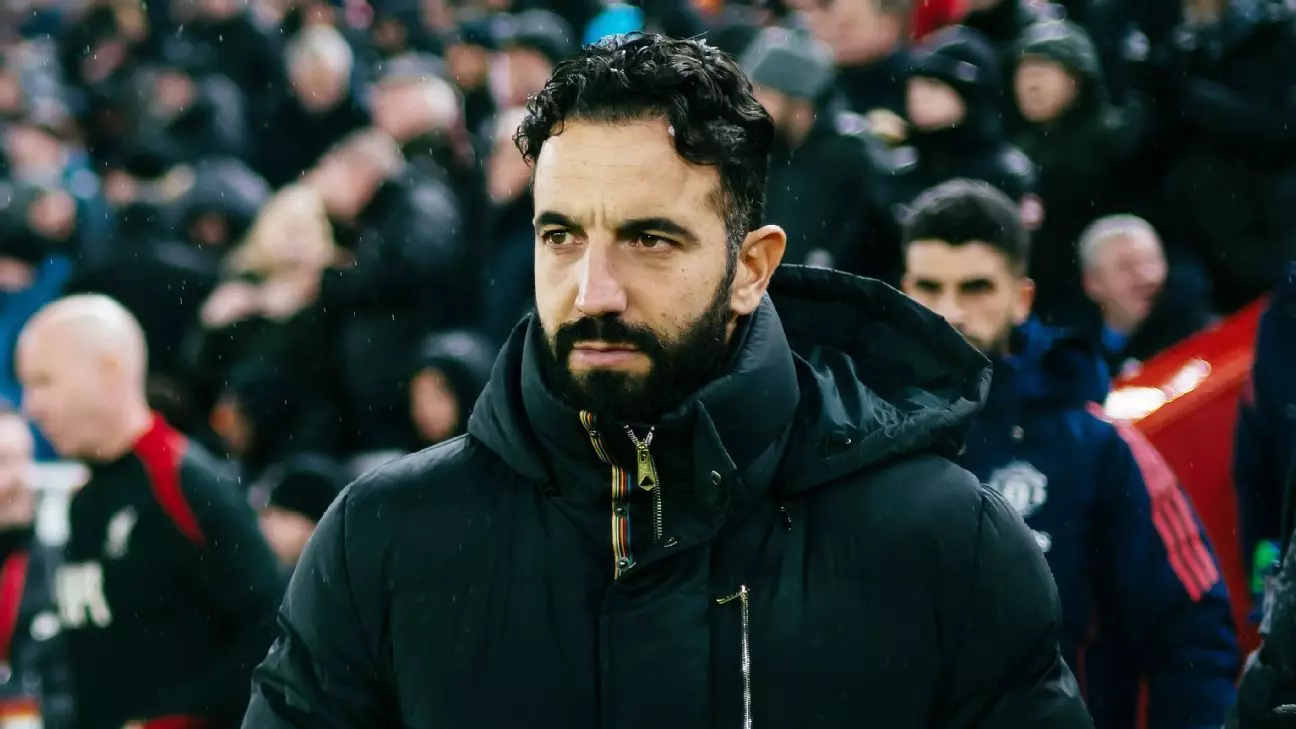Ruben Amorim’s appointment as manager of Manchester United has undeniably marked a significant turning point for the club during an extremely turbulent period. Taking over the reins in November, Amorim stepped into a precarious situation, with the team languishing in 14th place in the Premier League following the dismissal of Erik ten Hag. The expectation surrounding his appointment came with both promise and peril, signaling a need for revitalization within the squad, which had been struggling to find its identity.
Transitioning from a successful spell at Sporting CP, where he clinched two league titles in four years, Amorim made it clear that leading Manchester United would not only be a formidable challenge but also an exhilarating journey. However, a rough start only added to the weight of his responsibilities. With his first eleven matches yielding six defeats, Amorim recorded the most underwhelming initiation for a United manager since the early 1930s, amplifying the scrutiny he faced.
The intense nature of the Premier League cannot be understated, and Amorim’s initial struggles painted a vivid picture of his challenges. The criticism escalated following a heart-wrenching defeat at home against Brighton & Hove Albion, during which Amorim expressed his disappointment by labeling the team as potentially “the worst, maybe, in the history of Manchester United.” This frank admission, while reflecting his emotional investment in the squad, later became a point of contention.
In the footballing world, words can have profound implications, and Amorim recognized the weight of his statement. Subsequent performances gave fans a glimmer of hope, with the team garnering victories and climbing to 12th place. Nonetheless, despite the numbers, Amorim emphasized a need for broader perspective; focusing on development and systemic improvement rather than just immediate results was vital for navigating the club’s revival.
One striking aspect of Amorim’s leadership has been his unapologetic approach to discipline and accountability. Notably, his decision to omit Marcus Rashford from the starting lineup for an extended period sent ripples through the squad and highlighted his commitment to performance standards. Amorim’s comments were unambiguous: he values relentless effort and dedication, suggesting he would rather employ less glamorous, albeit hard-working, players over assets who fail to deliver maximum effort.
Such decisions underscore a managerial philosophy that prioritizes collective responsibility and performance-oriented mentality. Amorim conveyed that this ethos is crucial for achieving shared goals, reinforcing the idea that every player must contribute to the broader mission of winning titles and restoring the club’s erstwhile glory.
Moreover, Amorim’s insightful analysis of player roles and their evolving contributions has sparked discussions about fitness and suitability for modern football demands. When reflecting on veteran midfielder Casemiro, who has not featured prominently under his management, Amorim highlighted a need for high-intensity players to match the fast-paced nature of the Premier League. This perspective places value on adaptability and a willingness to embrace change, even for established players.
Casemiro’s wealth of experience remains significant; however, Amorim’s assessment that the team’s dynamics require players who can maintain physical intensity illustrates a modern understanding of football’s demands. Players are no longer solely measured by their past laurels but by their current capabilities and compatibility within the team’s strategic framework.
In the midst of adversity and a growing realization of his management style, Amorim has demonstrated resilience. The relationship with fans has been a beacon of hope; their unwavering support despite disappointing results signals belief in a long-term project. For Amorim, navigating through these turbulent waters will require both patience and strategic foresight.
As the season unfolds, the focus remains on building a coherent vision for Manchester United, a club that possesses a rich history yet now seeks to reclaim its status among the elites of European football. Amorim’s journey is a testament to the intricacies of football management – a delicate balance between maintaining high standards while fostering an environment ready to grow and evolve. In these moments of contention, the potential for greatness looms larger, waiting for the collective spirit of the club to emerge.


Leave a Reply